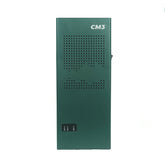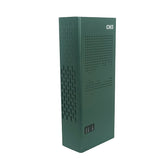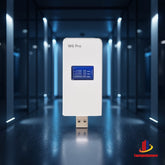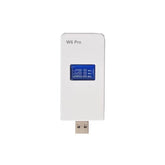Does the "chip war" affect the price of mobile phone signal jammers
In recent years, anyone who cares about international politics will know about the topic of "chip war". The United States, which claims to be the world's number one hegemon, began to attack my country's semiconductor industry a few years ago in order to limit the rapid development of our country. The chip industry has carried out all-round restrictions and suppression. Over the past few years, many industries have been fighting against the United States in the "chip war". Now the question is, in the field of signal shielding, will the "chip war" affect the price of mobile phone signal jammers?

First of all, the "chip war" mainly refers to the strict blockade and control imposed by the United States and some European countries on chips with a process below 14 nanometers. The most affected and most representative is Huawei's 5G mobile phone business. However, in the field of mobile phone signal shielding, since most of our signal shielding products use domestic chips, and the chip process standards used are not up to the 14nm level, so we can see the more gratifying results: After several years of "chip wars", the price of our cell phone jammer has not fluctuated significantly, that is to say, the "chip war" has hardly affected the price of mobile phone signal jammers.
Many years ago, we saw the steady development of our own domestic chips. When we were doing new product development and design, whenever there were domestic chips to choose from, we always took domestic devices as the first choice. We bring at least two benefits: First, the price of domestic chips will have an obvious price advantage compared to the price of imported devices, which will help control the price and cost of mobile phone signal jammers. Another advantage is that it will not be controlled by others, and the purchase channels of key chips or electronic components will not be affected by changes in the international relations environment.













